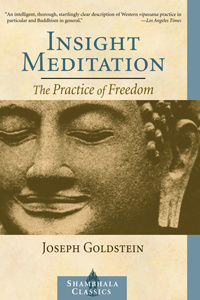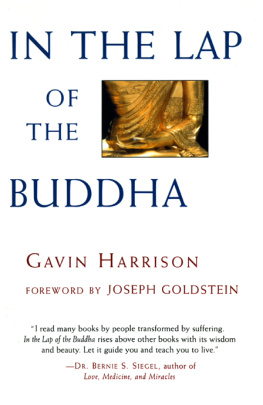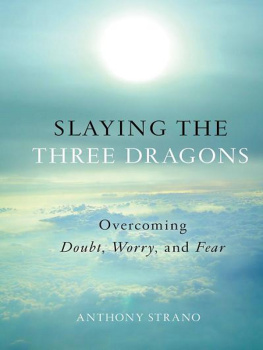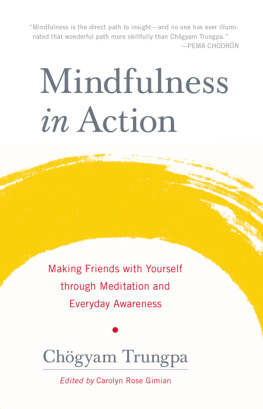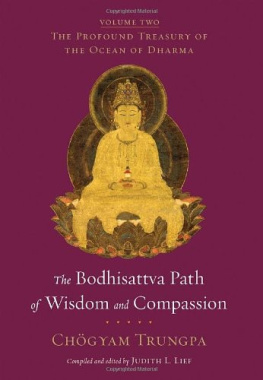A thorough, illuminating, and practical overview of insight meditation.... This classic text is a rich source of Buddhist wisdom and practice.
Spirituality & Health
For those who are already treading the path as well as those who are just setting out, Seeking the Heart of Wisdom will be a welcome companion along the way.
The Middle Way
It succeeds excellently. Brilliantly, one would say, were it not that the simplicity and total unpretentiousness of the authors are so far removed from any striving for brilliance or effect. Goldstein and Kornfield are totally concerned with one thing only: to convey as straightforwardly as possible the essence of the Buddhas message.
Buddhist Studies Review
A skillful blend of pragmatic instruction, psychological insight, and perennial wisdom.
Daniel Goleman, author of Emotional Intelligence
ABOUT THE BOOK
In Seeking the Heart of Wisdom Goldstein and Kornfield present the central teachings and practices of insight meditation in a clear and personal language. The path of insight meditation is a journey of understanding our bodies, our minds, and our lives, of seeing clearly the true nature of experience. The authors guide the reader in developing the openness and compassion that are at the heart of this spiritual practice. Among the topics covered are:
- The hindrances to meditationranging from doubt and fear to painful kneesand skillful means of overcoming them
- How compassion can arise in response to the suffering we see in our own lives and in the world
- How to integrate a life of responsible action and service with a meditative life based on nonattachment
Useful exercises are presented alongside the teachings to help readers deepen their understanding of the subjects.
JOSEPH GOLDSTEIN began exploring meditation as a Peace Corps volunteer in Thailand. Following extended meditation retreats with various teachers in India and Burma, including the renowned Buddhist meditation master Anagarika Sri Munindra, he cofounded the Insight Meditation Society in Barre, Massachusetts. He has taught numerous meditation classes, workshops, and retreats in America and abroad over the last eight years. He is also the author of The Experience of Insight, Insight Meditation, and One Dharma.
JACK KORNFIELD is one of the key teachers to have brought Buddhist mindfulness practice to the West. He is the cofounder of the Insight Meditation Society in Barre, Massachusetts, and Spirit Rock Meditation Center in Woodacre, California. His books include After the Ecstasy, the Laundry; The Art of Forgiveness, Lovingkindness, and Peace; Meditation for Beginners; and The Wise Heart.
Sign up to learn more about our books and receive special offers from Shambhala Publications.

Or visit us online to sign up at shambhala.com/eshambhala.
SEEKING THE HEART OF WISDOM

The Path of Insight Meditation
Joseph Goldstein & Jack Kornfield

SHAMBHALA
Boston & London
2012
DEDICATED TO OUR TEACHERS,
OUR COLLEAGUES,
AND OUR STUDENTS
FOR THE DHARMA WE HAVE LEARNED
FROM ALL OF THEM
Shambhala Publications, Inc.
Horticultural Hall
300 Massachusetts Avenue
Boston, Massachusetts 02115
www.shambhala.com
1987 by Joseph Goldstein and Jack Kornfield
Cover design by Jim Zaccaria
All rights reserved. No part of this book may be reproduced in any form or by any means, electronic or mechanical, including photocopying, recording, or by any information storage and retrieval system, without permission in writing from the publisher.
The Library of Congress catalogues the previous edition of this book as follows:
Goldstein, Joseph 1944
Seeking the heart of wisdom. Includes index.
I. Meditation (Buddhism) 1. Kornfield, Jack, 1945. II. Title.
BQ5612.G643 1987 294.3443 87-9710
eISBN 978-0-8348-2525-3
ISBN 0-87773-327-9 (pbk.)
ISBN 1-57062-805-X
CONTENTS
Seeking the Heart of Wisdom was born out of the authors long collaboration in teaching vipassana meditation retreats throughout the world. These intensive retreats, ranging in length from weekends to three months, provide opportunities for a simple and direct investigation of the mind and body. Through the development of concentrated awareness, insight into the changing nature of phenomena deepens in a very personal and immediate way. This, in turn, leads to an understanding of the causes of suffering in ourselves and others and to the possibility of compassion and genuine freedom.
The book offers a clear explanation of the meditation instructions and exercises that are given on retreats. While its flavor and emphasis are drawn from silent retreat practice, the teachings are also set in a broad context that makes meditation practice meaningful and relevant in our lives. These teachings are strongly rooted in the Buddhist tradition, especially as it has developed and flowered in Thailand and Burma. Two of the main lineages that have been interwoven throughout the book are the forest monastic tradition of Ven. Achaan Chaa and the practice of intensive satipathana vipassana meditation as taught by the late Ven. Mahasi Sayadaw. Together they help to provide the breadth of perspective and depth of understanding that characterize the wisdom of the Buddha.
Readers who desire information about Buddhist insight meditation retreats and teaching worldwide may contact the Insight Meditation Society, Pleasant Street, Barre, MA 01005 (www.dharma.org) or Spirit Rock Meditation Center, P.O. Box 909, Woodacre, CA 94973 (www.spiritrock.org).
W E LIVE IN AN ERA of remarkable material development, which has produced numerous benefits. However, it is clear that despite this progress human problems have not been entirely eliminated. Political and ideological conflicts prevail between nations, giving rise to war, violence, and oppression, while at the individual level people continue to experience fear, anxiety, and other forms of dissatisfaction. This indicates that material development alone is not sufficient; there is an urgent need for a corresponding inner, mental development. An excellent means for achieving this is meditation.
There are many varieties of meditation, but what they generally have in common are techniques for making the mind peaceful. Two of the features which distinguish Buddhist traditions of meditation are insight and compassion. The more we become familiar with the mind and come to realize impermanence, suffering, and selflessness in our own lives through meditation, the more we empathize with other sentient beings and the kind heart of compassion grows naturally within us. This is important both in the individuals pursuit of happiness and in his contributing to the peace of the world.
It is encouraging to find Westerners who have sufficiently assimilated traditions of the East to be able to share them with others, as the authors of this book are doing. May such efforts further the peace of all beings.
The Dalai Lama
McLeod Ganj
April 20, 1987
W E GRATEFULLY ACKNOWLEDGE the important assistance we received in completing this book from many good dharma friends: Andy Cooper for doing a massive editing job; Sharon Salzberg (our co-teacher and perennial inspiration in practice) for substantial editing and revision; Roger Wheeler for his initial encouragement to gather the material for this book and for his many constructive comments; Evelyn Sweeney (a most faithful dharma student) for typing and transcribing very many of our talks; Jeanne Bendik (former manager at IMS) for years of tape transcription work; Helen Parnell and Thea Snyder Lowry and Tom Lowry for the use of their homes and computer time; Timothy Sweeny, Sam Pett, and Ellen Mooney for word processing; Dan Drayson, Richard Getler, John Miller, and Wicki Sedgwick for computer assistance; Jean Conlogue and Patricia Masters for retyping much of the manuscript; Nancy Brown for her assistance; Liana and Caroline for their patient support; and Shambhala Publications, Sam, Larry, and Emily for the paramita (perfection) of ksanti (patience).
Next page
